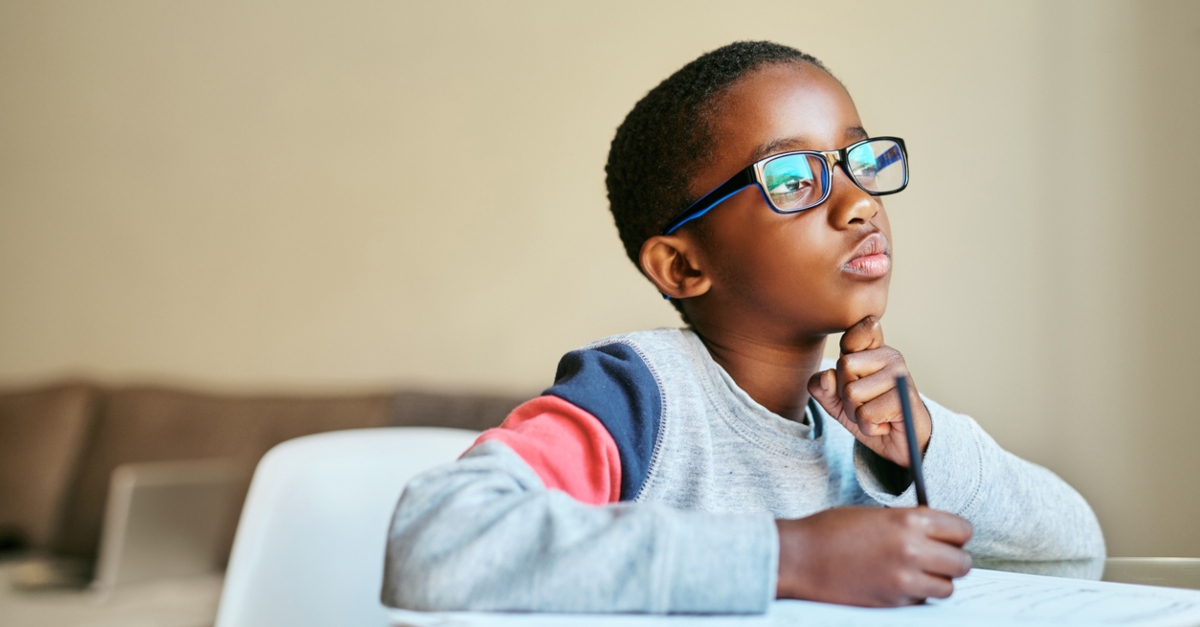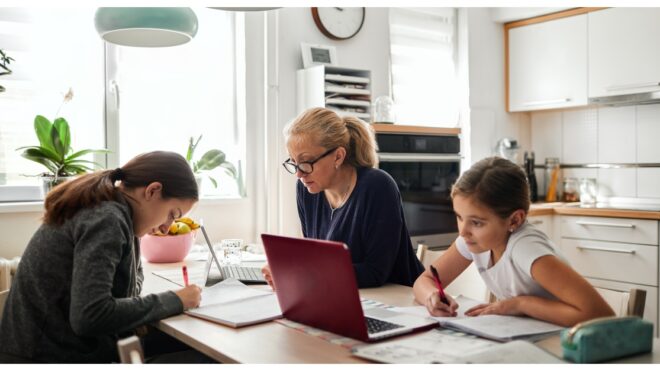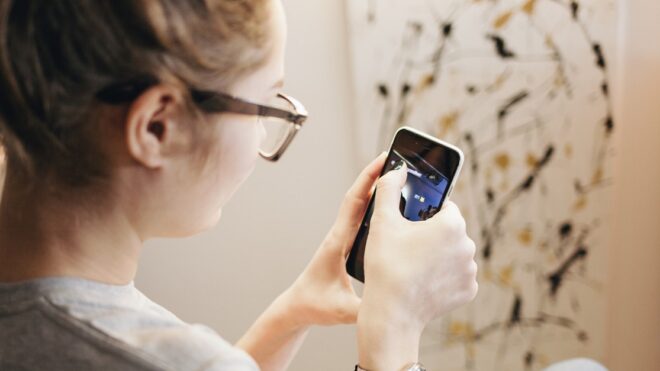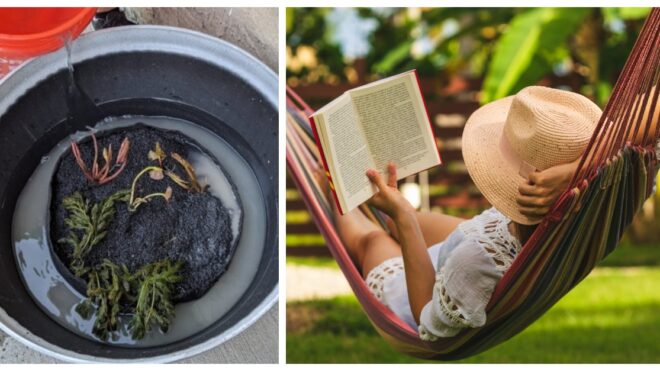
My son has been homeschooled since first grade. While homeschooling wasn't initially our first choice, it's something that we now love. Homeschooling gives us a lot of freedom in terms of what he learns, where he learns it, and when he learns — since we aren't beholden to a brick-and-mortar school, and we don't have to follow a strict schedule, we're able to go out and have all kinds of adventures, and he's able to study a lot of nontraditional subjects and topics.
However. In my experience, homeschooling your child the way we do (a hybrid of homeschooling and unschooling, and leaning more toward the latter every day) also means that sometimes you mess up. Sometimes, you don't realize you're in over your head until it's too late, and you don't always have the resources to dig yourself back out of the hole you've made.
Case in point: My homeschooled kid missed almost two years of math. It didn't happen on purpose, but it did happen. I'm not proud of it, but now that we're on the other side, it's a lot easier to talk about. Luckily, he's mostly caught up now, and the experience has even taught me a lot about just how OK most kids will be after the virus epidemic finally concludes.
First of all, let me explain what exactly happened with math. Basically, my kid and I kept running into block after block while working through math when he was in third grade. It wasn't that he couldn't comprehend what he was supposed to do; it was that I hadn't given him the proper foundation in math that he needed. He basically blew through first and second grade pretty well, and since I'm not a teacher professionally, I didn't realize there was still a lot he wasn't learning in terms of number sense.
Unfortunately for both of us, it took a while before I realized that the problem was my failure, not his lack of comprehension. That meant there were a lot of tears (from both us) before I started to try to figure out how to address the problem.
At first, I thought maybe we could just go back and start from first grade again, blow through it quickly, and he would somehow gain the knowledge that he lacked … while being taught by the same person (me) who didn't know what she was doing. I'm good at a lot of things, but teaching math isn't one of them.
When that didn't work, I suggested we take a week off from math just to give ourselves a little bit of distance from what was becoming an area of extreme stress. Well, that week turned into two, and then a month, and then, I don't know you guys, it turned into almost two years.
It's not that he didn't do math at all — he would sometimes do math on Khan Academy, or he'd play a math game online — but there was absolutely no instruction and no real learning during that time. He'd choose games and levels of math that he knew, and I'd just pretend that maybe he would somehow be OK after all.
The reason I assumed he'd be OK has a lot to do with an idea that's very prevalent in the unschooling community: When a child wants to learn to do something, they will.
Let me go ahead and tell you: That idea terrifies just about every parent who isn't committed to unschooling. It terrified me the first time my friend Holly said it to me, even though she had four homeschooled kids and could back it up. Given the option, my kid would probably choose to play Apex Legends all day long and not learn anything that's measurable on a standardized test. The idea of just choosing to believe that he'll learn what he wants when he's motivated to do so is scary: What about standards? What about college?
Well, friends, what about … childhood?
My kid was an early reader. It made sense, as his dad and I are both readers and we're very wordy and we just love words in this house. We were pleased with his skills, but when he started kindergarten (in a school), he began flat-out refusing to read. When we started homeschooling, he still avoided reading. This was often a source of stress, and often a source of tears (again, for both of us). I was discussing this with a group of homeschooling parents when I met Holly, and she told me he'd learn to read when he wanted to.
He didn't really get into reading until he was 9, but you guys: He read the entire Percy Jackson series in a matter of weeks and quickly followed it up with everything else the author has written. He's 11 now, reads well above his age level, and the stack of books he is reading or plans to read is almost as large as mine, and mine is excessive as all get out. This is a kid who loves reading! It's pretty remarkable.
Since I had that experience with him, somewhere in the back of my mind part of me believed that he really might learn math when he was ready. So I just … let it go. Our days got infinitely better. We had less drama. We had next to no fights when it came to school. While I occasionally worried, it was so much nicer to just not deal with the negative energy and for my child to enjoy learning that I didn't push it.
In fact, no one even brought up math until one day he asked if he could take a math class, because a friend of his knew more math than he did, and he wanted to learn it.
When they want to learn it, they will. OK.
Since I knew that I couldn't and shouldn't teach him math myself, I signed him up for a local tutoring service and told them the whole story. They evaluated him, set him up with lessons, and he's been steadily plugging away ever since. The first day that he realized he could do math was one of my favorite days in our entire homeschooling experience — it was when he really, truly realized that the problem was never him and his comprehension; it was me and my own ability in terms of teaching. Now this is a kid who loves math.
Why am I telling you all of this? Because the only parents I know who aren't completely stressed out about their children's schooling right now are the parents who were already homeschooling and unschooling well before this pandemic. And that's not because we have some kind of extra-special ability; it's just that we're already used to rolling with the punches and making up our kids' schooling as we go along. Parents who are new to homeschooling don't have that experience, and parents who are trying to juggle distance learning while working from home don't have the extra headspace to even try to relax about any of this.
Teachers who are in-person at schools are balancing being scared for their health, taking care of students who are scared, and somehow still teaching everyone and keeping the kids on grade level.
In other words, it's all really hard right now.
It's true that not every kid will make it out of this experience educationally sound. The education system in the US is hopelessly classist and racist, and the same children who didn't receive the benefit of a fair, equal education before the pandemic aren't getting it now. But if you have the space to be super worried about your child's education right now, realize that your child will be fine. That's privilege. That's how it works.
I'm obviously in the same boat, so I'm not minimizing anyone and their worry about their kids. I worry about my child all the time, but those worries don't generally include worrying about keeping him safe from an abusive family member, or worrying that he won't have a roof over his head next month, or that I won't be able to buy groceries next week. I don't have to worry about him attending a school that has water that's not drinkable or air systems that are growing mold, or there aren't enough computers to go around. I don't have to worry about having a bad internet connection, and we have three devices he can use for schoolwork if he needs to. One of those is his very own laptop.
My kid will probably make it through this just fine. If you're reading this, your kid probably will, too. There's no point in feeling guilty about that; it's just a fact. It's important to recognize it and to channel that guilt you might feel into something productive for other children who aren't your own — for kids you might never meet.
As for your children, my child, and kids like them, they will be OK. They would be OK if they missed this whole year of school, but they haven't.
So take a second. Relax. Breathe. It has to end sometime, right?







